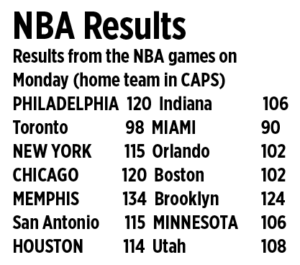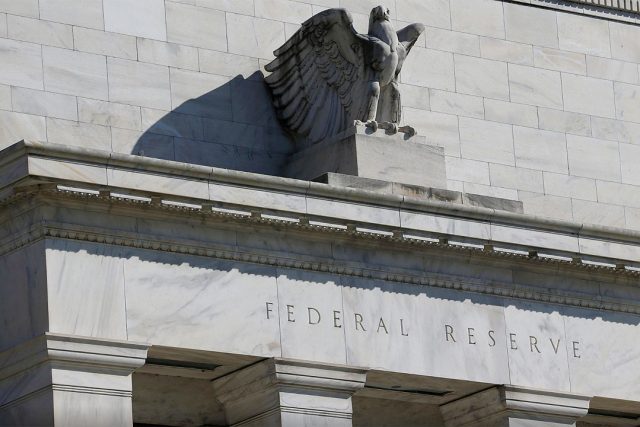RISHI SUNAK became the UK’s third Conservative prime minister (PM)within just four months, and the role is increasingly looking like a poisoned chalice.
His victory on Monday puts him in charge of an unenviable cocktail of problems including a struggling economy, a long-running energy squeeze and a divided party that’s slumped in the polls.
Gilts rallied on Monday on the news, pushing the 10-year yield to the lowest in almost three weeks, a sign that market confidence could be rebuilt under Mr. Sunak’s premiership. But any policy action will be closely watched by a market that has lost faith in the government and is highly sensitive to fiscal change.
In his first public comments as leader, Mr. Sunak called on his party to unite to deal with a “profound economic challenge.” Here’s a list of the many tests that face the newest occupier of No. 10 Downing Street:
ECONOMY
Mr. Sunak takes the reins against a recessionary backdrop and inflation running at a double-digit pace. Surveys on Monday showed private-sector activity shrank in October, another round of bad numbers after weak retail sales last week.
Meanwhile, households are struggling amid a worsening cost-of-living crisis. As prices for goods and services surge more quickly than wages, workers and families are left with less money to spend. Real earnings are down almost 3% in the past year.
Mr. Sunak also needs to tread carefully with fiscal measures to avoid detonating another dramatic reaction in the gilt market. The recent market turmoil in the wake of his predecessor’s tax giveaway sent bond yields jumping, with implications for borrowing costs not just for the government, but households and businesses too.
ENERGY CRISIS
Persistently high energy prices spurred by Russia’s invasion of Ukraine will present a problem to both businesses and households when government support runs out in April 2023.
If prices don’t decline by then, or an alternative energy support package is not put in place, inflation could reach 15% or higher, according to some forecasts. Household energy bills could increase twofold, putting further pressure on incomes at a time the economy is stuck in a recession.
HOUSING MARKET
The relentless rise in mortgage costs is one of the headaches that Mr. Sunak will inherit upon taking office. It’s already having an effect on the property market, where demand is slowing sharply and price growth has cooled, particularly in London.
Higher mortgage rates will also squeeze those looking to refinance in the coming year, and Mr. Sunak will be under pressure to ease the burden given many households are already under strain from rising energy costs and soaring inflation.
PUBLIC SERVICES
Chronic underfunding and a growing malaise among civil servants and public-sector workers make spending cuts controversial, limiting Mr. Sunak’s political headroom.
The UK already saw a wave of strikes throughout the summer — adding to a picture of “broken Britain” — as workers pushed back against below-inflation wage rises.
Recent signals the government will have to push through an austerity program and cut spending has already led to calls from trade unions to protest against any such measures. Mr. Sunak will need to balance the need for budget cuts against the risk of sparking more industrial action over the winter, as well as giving the opposition Labor Party another stick to use against the government.
HEALTHCARE
Overflowing hospitals and long ambulance waits have become the norm in the UK, and the expected winter surge in hospital admissions threatens to overwhelm health services already stricken with underfunding and staff shortages.
The removal of the Health and Social Care levy cuts £13 billion of additional funding for the National Health Service (NHS) that might have gone toward improving social care to free up hospital beds. That’s money, or savings, that will have to be found elsewhere in the budget.
On top of all that, NHS staff are seeing their wages eroded by rising inflation, and are threatening strike action over pay.
PENSIONS AND BENEFITS
With inflation above 10% and still yet to peak, the government is under pressure to raise benefit payments in line with inflation and uphold the so-called triple lock formula on pensions. It dictates that payments rise in line with inflation, earnings growth, or 2.5%, whichever is the highest.
If uprated in line with inflation, welfare spending could reach £277 billion, around half of which being pensions, hitting the budget hard at a time when fiscal headroom is already scarce.
BREXIT
Brexit remains a thorn in the side of the Conservative Party, with the new premier under pressure to deliver on new trade deals and growth.
The Northern Ireland protocol — which removes the need for a hard border with the Republic of Ireland by keeping the region in the European single market for goods — is a particular sticking point, with businesses pushing back against the increased red tape and costs associated with the new arrangement.
BANKING TAX
Uncertainty rankles banks around whether a planned cut in the banking surcharge from 8% to 3% will still take place under Mr. Sunak’s leadership. Amid a squeeze on spending, the government can little afford to lose more income to the Treasury coffers.
Banks claim the cut is needed to keep London competitive against other financial centers, with analysis from PwC stating that alongside corporation and other employment taxes, UK banks may pay a higher rate than any financial center that competes with London. Chancellor Jeremy Hunt, who is likely to keep his position, hasn’t quelled speculation about the tax, saying he’ll wait to address the issue during his fiscal statement on Oct. 31.
PARTY DIVISIONS
And finally, though importantly, Mr. Sunak will be tasked with uniting a Conservative Party that is now bitterly divided by infighting, failed leaderships and deep ideological differences. Any hope of competing against Labour at the next general election in 2024 will depend on rebuilding bridges within the party.
He also risks political impotency if he doesn’t succeed in uniting the Tories behind his political agenda. The specter of former Prime Minister Boris Johnson still lingers on, with some Johnson loyalists still blaming Mr. Sunak for his downfall. Mr. Sunak said Monday in his short address that “stability and unity” were needed to get through the current difficulties. — Bloomberg











